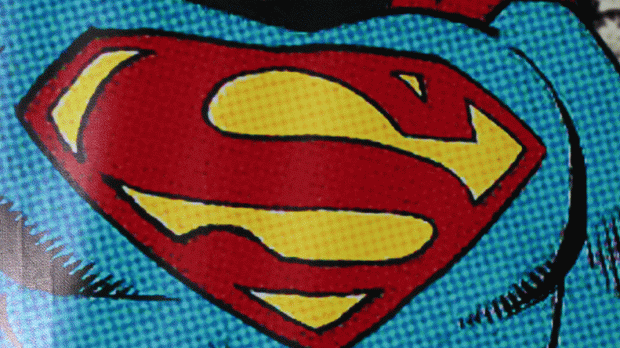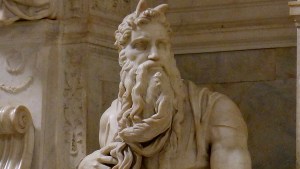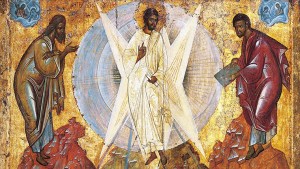In an interview he granted shortly after his book Hiding was published in 1998, the American philosopher Mark C. Taylor said religion “is most interesting where it is least obvious,” and that “there is a religious dimension to all culture.”
Pop culture is surely not an exception. On the contrary, it is one of those places where religion might seem “least obvious.”Most popular cultural manifestations are bursting with either explicit or implicit religious references, whether they are taken from scripture, oral tradition, or any other channels through which customs, beliefs, rituals, practices, conventions, and stories could be preserved and passed on.
Superman is surely one of the most widespread symbols of American pop culture. And also, not surprisingly, one of the most religiously loaded of them all.Some interpreters understand the religious subtexts in Superman as openly Christian. For example, when Pa Kent (no first name is provided for the adoptive, “earthly” father of the “heaven-sent” Superman) tells the boy to hide his exceptional powers from others, some readers see a kind of parallel with Jesus’ “hiding” or “lost” years. If we also consider that the name of Superman’s mother on this planet is “Mary,” the table seems set for a Christian reader of the cherished comic character.
As Dan W. Clanton Jr. explains in his article “The Origin(s) of Superman,” a comparison between Superman and the Christ of the New Testament is possible, but only to a certain extent. “Simplifying the Gospels,” Clanton writes, “one might come away with an image of the Christ as one who descends from the heavens as an alien yet has both a human presence and appearance, who wishes to help humanity via his superhuman powers … and who has a human mother named Mary.” However, Clanton warns, “we should not make too much of these parallels; there are far too many details and plot points missing for a substantive link.”
In fact, Superman is more of a Moses than a Christ-like figure.
From his very inception, back when Jerry Siegel and Joe Shuster came up with the idea in 1933 while still in high school, Superman was inspired by both Jewish folk tales and the Torah. Siegel and Shuster were both sons of European Jewish immigrants, and they surely leaned heavily on their own tradition when they created their superhero.
On the one hand, Superman was loosely based on the famous folk tale of the Golem of Prague, in which a human-like being is created by the 16th-century Rabbi Loew of Prague to defend the ghetto from anti-Semitic attacks. Superman, like the Golem, would be a kind of champion of the oppressed — only the Golem is made out of clay (and his story ends up in disaster) and Superman is the man of steel.
But Superman is, pretty clearly, more of a metaphor for Moses. Clanton points at three fundamental similarities: (1) the “godlike” nature of Superman’s family name (see below more on the religious meaning of Kal-El) ; (2) the theme of immigration for the sake of survival; and (3) the adopting of a “dual identity” as an issue that eventually needs to be resolved with a daring bet in favor of the oppressed.
Superman, like Moses, is born in dangerous times. Moses was born in a very specific moment in Egyptian history when the Israelites were still an enslaved minority but nevertheless increasing in population. Worried that they might grow in numbers and eventually become a threatening force able to build alliances with Egypt’s enemies, Pharaoh ordered all newborn Hebrew boys to be killed, so as to reduce the population. Moses’s Hebrew mother, Jochebed, secretly hid him, putting him in a small basket (a ship of sorts) and sent him off down the Nile, hoping someone would find him, take him in, raise him, and keep him safe. He is eventually rescued by the daughter of the Pharaoh himself, and grows up in an environment in which his true identity remains concealed. It is not until much later when he discovers who he really is, finally using his “power” to liberate his people from tyranny.
Superman’s story mirrors Moses’. He is also sent away from certain death by his parents, who put him on a (space)ship hoping someone would eventually find him and keep him from danger. Like Moses, he is raised in an alien environment where he is forced to keep his true identity concealed, and is only allowed to reveal it to protect others from harm.
Even more interestingly, Superman’s true Kryptonian name, Kal-El, includes a common Near Eastern name for God, “El.” This name is featured in the Bible as incorporated in other names to refer to God — “Elohim” (which can be translated, with some licenses, as “the living god”) and “El-Shaddai” (translatable as either “the almighty god,” “the god that is more-than-enough,” or “the self-sufficient one”). It is also part of other typically Hebrew names: Isra-El, Dani-El, Gabrie-El, and the like. Superman’s Kryptonian name, when spelled in Hebrew, could be translated as either “the voice of God” (an expression often used to refer to the prophets) or “the swift god.”
Still, Superman can be read as a religious character, whether Jewish or Christian. In both cases, the character still provides readers (and viewers) with a story built around a fundamental existential bet: that of embracing one’s own authentic identity and putting it to the disinterested service of others.



